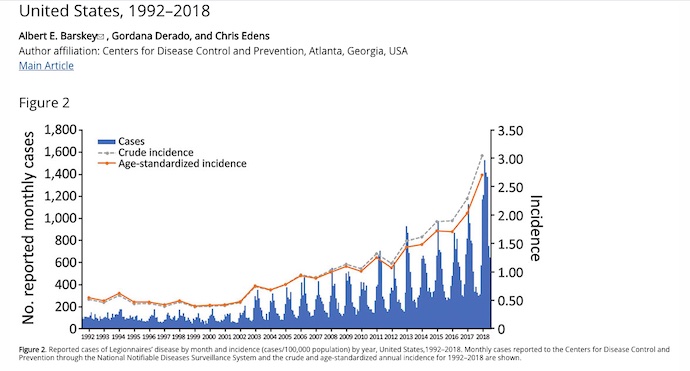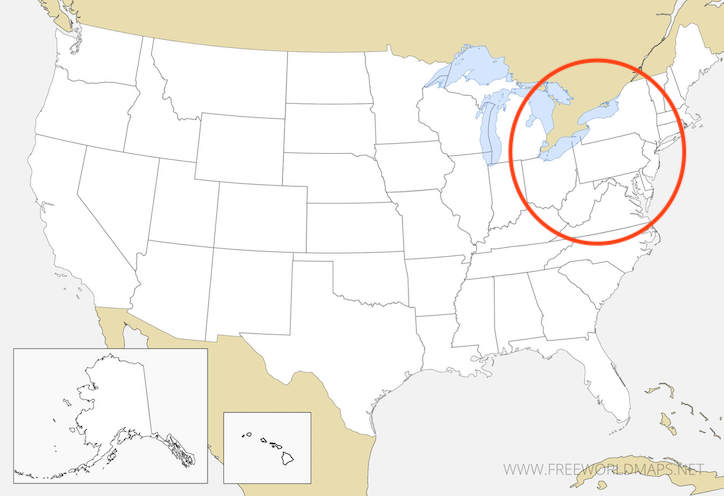Legionnaires’ disease cases in the U.S. have been rising steadily since 2003, according to a new study by researchers at the Centers for Disease Control and Prevention (CDC). The three-person research team analyzed 26 years of data from 1992 (the earliest year electronic data was available) through 2018. They found that the incidence of cases in 2018 was 5.6 times higher than the rate in 2002, but they aren’t exactly sure why.

One reason might be increased testing. After the severe acute respiratory syndrome (SARS) pandemic from 2002 – 2003, it’s likely that doctors increased testing of community-acquired pneumonia patients and discovered more cases of Legionnaires’ disease. And there are plenty of cases to discover. According to several studies, Legionnaires’ disease is severely underreported with some estimating that as many as 20,000 cases may actually occur annually in the U.S.
Legionnaires disease is a severe, often deadly form of pneumonia. It is not spread through person-to-person contact. People get Legionnaires’ disease when they inhale water vapor that is contaminated with legionella bacteria.
Symptoms of Legionnaires disease usually develop within 14 days of exposure, include fever, cough, shortness of breath, headache, and muscle aches. Legionnaires disease can be treated with antibiotics, but most people with these infections require hospitalization. About 10 percent of all cases are fatal.
In this study, researchers found that from 1992 to 2002, the number of cases remained fairly steady with an average of 1,221 cases reported annually. But from 2003-to 2018, the average was 4,369 cases reported annually.
Increases occurred in nearly every demographic. The largest number of cases occurred among white people, but the highest incidence as a percentage of the population was among black people
Men accounted for about 60 percent of cases before 2003 and about 62 percent of cases after.
Overall, most cases occurred from summer to early fall. And the Northeast region of the U.S. had the highest incidence of cases. Specifically, an area extending from Ohio into New York state and Maryland, researchers said.

Legionnaires’ Disease Lawyers
Our Legionnaires’ lawyers represent clients nationwide. For a free consultation with one of our lawyers, please call 612-338-0202, text 612-261-0856, or complete the form below.